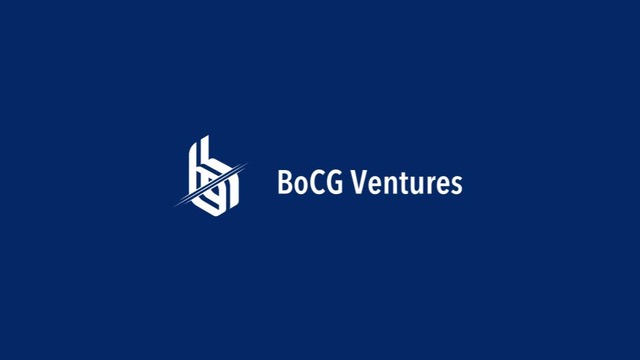Effective Leadership Training in 2025: Skills, Strategies & Success

Effective Leadership Training in 2025: Skills, Strategies & Success
Leadership training is a structured developmental process designed to enhance the skills, knowledge, and capabilities of individuals in leadership roles within organizations. It focuses on equipping managers and aspiring leaders with foundational skills such as emotional intelligence, effective communication, problem-solving, and strategic planning.
In today's rapidly evolving business landscape, leadership training is crucial. It helps leaders better understand their teams, navigate organizational change, and foster a positive company culture that supports growth and innovation. The ability to lead effectively can significantly impact employee engagement, team performance, and overall organizational success.
By 2025, the relevance of leadership training will only amplify as businesses continue to adapt to industry trends and face new challenges. Investing in leadership development initiatives is essential for maintaining competitiveness and ensuring sustainable growth in an ever-changing environment.
This is where specialized services like leadership coaching come into play. Such coaching can be particularly beneficial in sectors like private equity, where managing investments requires not just financial acumen but also strong leadership skills. Moreover, tailored programs such as leadership coaching for women can empower underrepresented groups in leadership roles, further enhancing diversity and inclusivity within organizations. At CPO PLAYBOOK, we deliver comprehensive leadership coaching services across various industries including technology, healthcare, life sciences, finance, and more.
Understanding the Fundamentals of Leadership Training
Leadership training begins with a structured developmental process designed to move individuals from basic management skills to advanced leadership capabilities. This process is not random. It’s planned, intentional, and measured for impact, ensuring participants progress through stages of knowledge enhancement, skills development, and capabilities improvement.
Foundational Skills Covered in Leadership Training Programs Include:
- Emotional intelligence: Understanding and managing your own emotions while also recognizing and influencing the emotions of others.
- Communication: Delivering clear messages, active listening, and adapting communication style to different audiences.
- Problem-solving: Approaching challenges analytically, making decisions under pressure, and fostering creative solutions.
- Coaching and mentoring: Developing team members by providing guidance, encouragement, and constructive feedback.
- Digital collaboration: Navigating remote work tools and leading hybrid or virtual teams effectively.
- Planning and strategic thinking: Setting priorities, aligning goals with organizational vision, and anticipating future needs.
The objectives of leadership training go beyond simply teaching theory. Programs are built to:
- Equip current and future leaders with practical tools they can apply immediately in their roles.
- Strengthen decision-making abilities that align with company values and objectives.
- Foster adaptability so leaders can manage organizational change successfully.
- Cultivate a positive workplace culture where employees feel engaged and valued.
“The best leadership training doesn’t just fill gaps; it transforms managers into role models who inspire confidence at every level.”
Leadership training lays the groundwork for lasting growth by embedding essential habits that drive performance. The right approach ensures every leader is prepared to meet today’s challenges while building a resilient foundation for whatever comes next.
Key Components of Effective Leadership Training Programs
Effective leadership training programs consist of several key components that work together to create a comprehensive learning experience. These components include:
1. Internal Training Sessions
Internal training sessions act as the backbone of most leadership development frameworks. These sessions are typically tailored to an organization's culture and strategic goals, ensuring relevance and consistency.
- You often see structured workshops, scenario-based simulations, and role-playing exercises that allow leaders to practice decision-making in a safe environment.
- The direct impact is measurable—participants gain clarity on organizational expectations, align with company values, and build confidence in their ability to manage real-world challenges.
- Regular internal training also creates a common language for leadership across departments.
- To explore more about the various methods of internal training sessions, you can check out this article on the top 10 types of employee training.
2. Mentorships
Mentorships provide a powerful layer of personalized growth. Unlike classroom-based learning, mentorship programs connect emerging leaders with experienced professionals who offer guidance, share lessons learned, and model effective behaviors.
- This relationship accelerates skill acquisition by addressing individual strengths and gaps in real time.
- Mentors can introduce mentees to wider networks inside the organization, paving the way for cross-functional collaboration and knowledge sharing.
- Many high-performing organizations credit their bench strength and adaptability to robust mentorship programs.
- If you're interested in understanding more about the significance of mentorship in professional growth, this article on what mentoring is provides valuable insights.
3. Experiential Learning Methods
Experiential learning methods give leadership training a distinct edge by moving beyond theory into action. Case studies drawn from actual business scenarios, project-based assignments, and job rotations immerse participants in situations where quick thinking and adaptability are required.
- Real-world experience cements core competencies such as problem-solving, negotiation, conflict resolution, and change management.
- Leaders retain knowledge longer when they apply concepts directly to their daily responsibilities.
- For a deeper understanding of how experiential learning can enhance development, consider reading this detailed piece on experiential development.
Leadership training programs built on these components create a dynamic learning environment where growth is continuous and directly applicable to the modern workplace.
Key Strategies for Successful Leadership Development Initiatives
Leveraging Manager Strengths for Organizational Success
Identifying and maximizing individual manager strengths transforms leadership training from a generic program into a tailored development journey. What's leadership training if not about unlocking potential? Leaders who play to their unique abilities—whether that's strategic thinking, empathy, or innovation—drive results that ripple across teams. Organizations benefit from these diverse strengths through increased agility, creative problem-solving, and robust decision-making. A Gallup study found that employees led by managers who leverage their strengths are six times more likely to be engaged at work.
Fostering Transparency in Effective Leadership
Transparency builds trust. Leaders who communicate openly about company goals, challenges, and expectations set a clear tone for their teams. This candid approach reduces uncertainty, aligns everyone around shared objectives, and encourages honest conversations about obstacles or mistakes. When transparency becomes part of the management culture, employees feel valued and included in the organization’s trajectory. It fosters a sense of ownership and accountability that is vital for navigating rapid changes in 2025.
Encouraging Feedback in Leadership Development
Regular feedback is essential for growth—both for leaders and their teams. Constructive input helps managers identify blind spots, adapt to changing demands, and continuously improve their skills. Effective leadership training programs embed feedback loops into every stage of development:
- 360-degree reviews for holistic insights
- Peer coaching sessions for real-time suggestions
- Self-assessment tools that promote reflection
When feedback is normalized within the culture, continuous improvement becomes second nature. Managers develop resilience while fostering environments where every team member feels empowered to contribute ideas and voice concerns.
However, it's not just middle management that requires these tailored development journeys. The Board of Directors also plays a crucial role in shaping the organization's future. By utilizing executive coaching specifically designed for board members, they can make informed decisions that align with long-term goals while ensuring the company stays on track. Integrating these strategies into both leadership development initiatives and board coaching can significantly enhance organizational success and sustainability.

Representation of managers engage in practical leadership training to grow influence and clarity.
The Role of Leadership Training in Driving Organizational Success
Leadership training is a catalyst for measurable improvements across several critical business metrics. One area where its impact is immediate is employee engagement. When leaders possess strong communication, empathy, and coaching skills, they create an environment where employees feel supported and motivated. Engaged employees are more likely to contribute innovative ideas, collaborate effectively, and show higher levels of commitment to organizational goals. Gallup’s workplace studies consistently reveal that teams with engaged managers experience significantly lower turnover rates and higher productivity.
Ensuring Consistent Team Performance
Ensuring consistent team performance depends on the ability of leaders to set clear expectations, provide timely feedback, and align individual efforts with broader objectives. Leadership training programs teach managers how to standardize workflows without stifling creativity. This balance helps teams maintain high standards while adapting to new challenges. For example, organizations that invest in scenario-based learning often see smoother project delivery across departments because leaders are better equipped to handle disruptions and recalibrate team priorities as needed.
Legal Risks Mitigation
Legal risks mitigation is another essential benefit. Many management issues—such as discrimination claims, wrongful terminations, or compliance failures—stem from gaps in leadership capability or awareness. Training programs that include modules on legal compliance, ethical decision-making, and conflict resolution equip leaders with the skills to navigate complex workplace situations confidently.
A well-trained manager not only reduces exposure to costly litigation but also shapes a culture of trust and accountability.
Leadership training serves as a strategic shield against preventable legal pitfalls while strengthening the foundation for sustainable growth through people-first management practices.
Preparing Organizations for the Future
The next dimension involves preparing organizations for the future by focusing on succession planning and relationship building within teams. This is particularly relevant for roles such as the Chief Financial Officer (CFO) or Chief X Officer (CXO), whose responsibilities extend beyond traditional boundaries. The CPO PLAYBOOK offers specialized executive coaching tailored for CFOs, empowering them to excel in their multifaceted responsibilities including human capital management.
Similarly, executive team leadership coaching provided by CPO PLAYBOOK focuses on enhancing the capabilities of executive teams, including women leaders and CEOs. This comprehensive coaching tool aids in refining leadership skills across various levels of the organization.
Moreover, the role of a CXO is crucial in ensuring that every interaction—from product development to workplace culture—is meaningful and aligned with the company’s strategic vision. With leadership coaching tailored for CXOs, organizations can drive value across all aspects of the business while enhancing satisfaction and engagement on both customer and employee sides.
Leadership training not only prepares organizations for future challenges but also plays a pivotal role in shaping successful financial strategies and enhancing overall executive performance.
Succession Planning and Building Strong Interpersonal Relationships Through Leadership Training Programs
Succession planning is a crucial element of leadership development. It ensures that organizations are prepared for future changes in leadership roles. Identifying and grooming high-potential individuals for these positions through structured training programs is vital. These programs should focus on developing key skills such as strategic thinking, decision-making, and adaptability to prepare them for upcoming leadership challenges.
Importance of succession planning in leadership development
Effective succession planning guarantees the continuity of leadership within an organization. It reduces the risk associated with sudden changes in management by ensuring that there is always someone ready to step into critical roles. This forward-thinking approach supports the organization's long-term vision and stability.
Preparing high-potential individuals for future roles through training programs
To identify potential leaders, organizations need comprehensive training programs that assess and develop their capabilities. These programs should include mentorship opportunities, real-world scenarios, and continuous feedback mechanisms to nurture their growth. By investing in these individuals, organizations build a robust pipeline of future leaders who can seamlessly transition into key positions.
Strengthening interpersonal relationships within teams is another essential aspect of leadership training. Strong relationships foster collaboration, trust, and effective communication among team members. Leadership training programs should emphasize the development of interpersonal skills such as empathy, active listening, conflict resolution, and teamwork.
Strengthening interpersonal relationships within teams
Leaders who excel at building relationships can create a positive work environment where employees feel valued and motivated. Training programs should incorporate activities that promote team bonding and mutual respect. Effective leaders understand the importance of connecting with their team members on a personal level to drive engagement and productivity.
Leadership training programs that integrate succession planning and the enhancement of interpersonal relationships not only prepare individuals for future roles but also cultivate a cohesive and collaborative organizational culture.
To achieve these goals effectively, organizations can benefit from specialized leadership coaching services, which provide tailored support for high-potential individuals. Such coaching not only prepares them for future leadership roles but also enhances their interpersonal skills significantly.
Moreover, Chief People Officers (CPOs) play a pivotal role in this process by aligning people strategies with business goals during critical transitions like restructuring or mergers. They often require strategic partners who understand executive coaching nuances and talent management intricacies. This is where resources like CPO PLAYBOOK come into play, offering valuable support in delivering executive coaching to teams during pivotal moments.
Conclusion
Leadership training is essential for the success of any organization. It motivates employees, helps the organization grow, and prepares leaders for future challenges.
Decision-makers should make leadership development a priority to ensure their organizations are ready for whatever comes next. By investing in effective leadership training programs, leaders will be equipped to handle current issues and also be prepared for the demands of 2025 and beyond.
What's leadership training? It's your key to building a resilient, adaptive, and motivated workforce. For instance, executive coaching for Chief Executive Officers is a strategic necessity that provides the support needed to excel in today's fast-paced business environment. This form of coaching fosters self-awareness, improves decision-making, and enhances leadership skills.
Make the commitment today to develop strong leaders who will steer your organization toward sustained success.


.avif)















